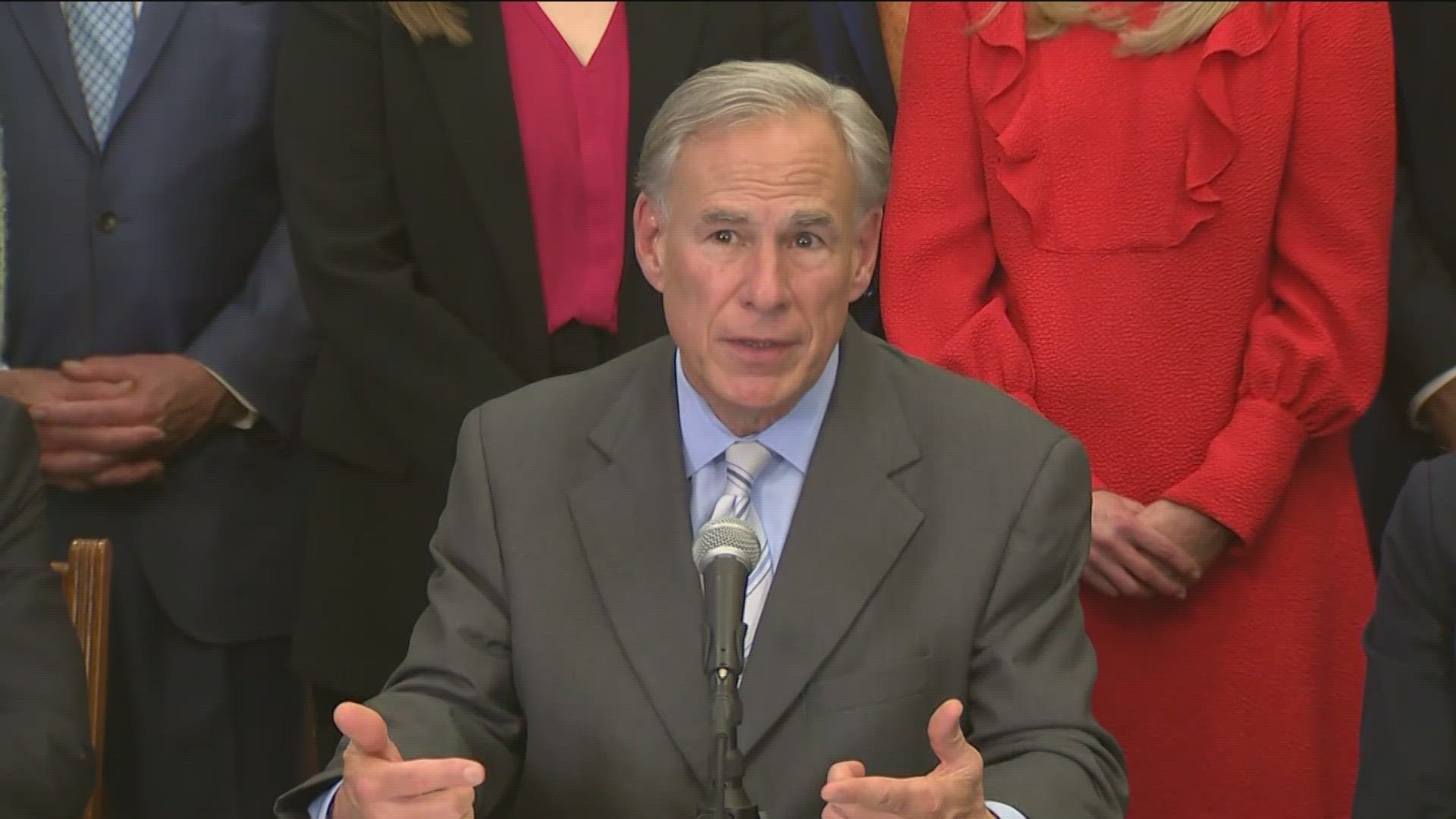AUSTIN, Texas — Gov. Greg Abbott stated he has asked the Texas Board of Pardons and Paroles to review and recommend a pardon for Sgt. Daniel Perry. This came one day after a Travis County jury convicted Perry of murder for shooting and killing Garrett Foster during the 2020 Black Lives Matter protests in Austin.
Sgt. Perry alleges Foster pointed an assault rifle at him and he shot Foster in self-defense. Travis County DA Jose Garza sought and obtained an indictment against Perry after police investigators determined Sgt. Perry didn’t commit a crime. The governor said he asked the Texas Board of Pardons and Paroles to expedite its review.
Generally, the Texas Board of Pardons and Paroles makes pardon recommendations to the governor. However, the Governor can ask the board to consider a case. Depending on the type of pardon, a person may or may not get full rights back.
The governor appoints board members. The term is six years.
Types of pardons
“A full pardon is a form of clemency available to a person, who has been convicted of a felony, misdemeanor, or traffic offense, or who has successfully completed a term of deferred adjudication community supervision,” the board’s website shows.
Someone who receives a full pardon has certain citizenship rights restored. Those rights include the right to serve on a jury and hold a public office. However, employment and professional licensing are granted at the discretion of the related state licensing boards.
Someone who received a full pardon is not eligible to become a Texas peace officer.
“A full pardon will not be considered for an offender while in prison except when exceptional circumstances exist,” the board’s website shows.
The person receiving a pardon is entitled to an expunction of all related arrest records. The process requires the applicant to request an expunction.
“A person convicted of or received deferred adjudication community supervision for an offense that was committed solely as a victim of trafficking of persons under Section 20A.02, Penal Code, may apply for clemency by completing a full pardon application,” the website shows.
“A person with a conditional pardon remains subject to conditions of release. A conditional pardon does not restore civil rights or rights of citizenship, and the governor can revoke the pardon if a person does not comply with conditions of release. A conditional pardon will be considered only after minimum statutory parole eligibility has been attained,” the website shows.
“A pardon based on innocence exonerates a person of the crime and erases the conviction when there is evidence of actual innocence or a court has determined the person is innocent. In order to consider a pardon for innocence, the Board requires either evidence of actual innocence from at least two trial officials, or the findings of fact and conclusions of law from the district judge indicating actual innocence,” the website shows.
“A full pardon may be considered for a person who is deceased. The application must be submitted by a person acting on behalf of the deceased,” the board’s website shows.
The governor’s website shows Gov. Abbott granted pardons and restored civil rights to two people last year.
The governor’s website shows:
“Antionette La'Quitta Oliver, 32, for assault by contact in 2015 (Collin County). Oliver was sentenced to pay a $269 fine.
“Samantha Jo Martinez, 37, for selling alcoholic beverage to a minor in 2006 (Wharton County). Martinez was sentenced to 1 year of deferred adjudication probation.”
In 2021, the website shows, the governor granted full pardons to eight people.
“David Boyd Pool, 74, for theft in 1965 (Galveston County). Pool was sentenced to 2 years of probation.
Gary Lynn Dickey, 42, for burglary of a vehicle in 1997 (Washington County). Dickey was sentenced to 2 years of deferred adjudication probation.
Christina Marie Edgar, formerly Christina Marie Emmert, 52, for theft in 2013 (Dallas County). Edgar was sentenced to 3 years of probation and a $1,500 fine.
Subrina Sophus-Collins, formerly Subrina Maeca Sophus, 54, for unlawfully carrying a weapon on alcohol premises in 1994 (Harris County). Sophus-Collins was sentenced to 2 years of deferred adjudication probation and a $500 fine.
Olukayode David Koleosho, 46, for robbery in 1996 (Fort Bend County). Koleosho was sentenced to 3 years of deferred adjudication probation and a $300 fine.
David Anthony Mendes, 46, for theft in 1994 (Collin County). Mendes was sentenced to 3 years of deferred adjudication probation.
Joe Bob Wilcoxson, 76, for theft in 2013 (Ellis County). Wilcoxson was sentenced to 3 years of probation and a $2,500 fine.
Joseph Edward Braithwaite, 59, for evasion of income taxes in 1999 (United States District Court, Southern District of New York). Braithwaite was sentenced to a $150 assessment.”
In 2018, Gov. Abbott commuted a death sentence to life in prison without the possibility of parole.
Last year, the board received 140 requests and recommended 75 to the governor. Only two were granted.

